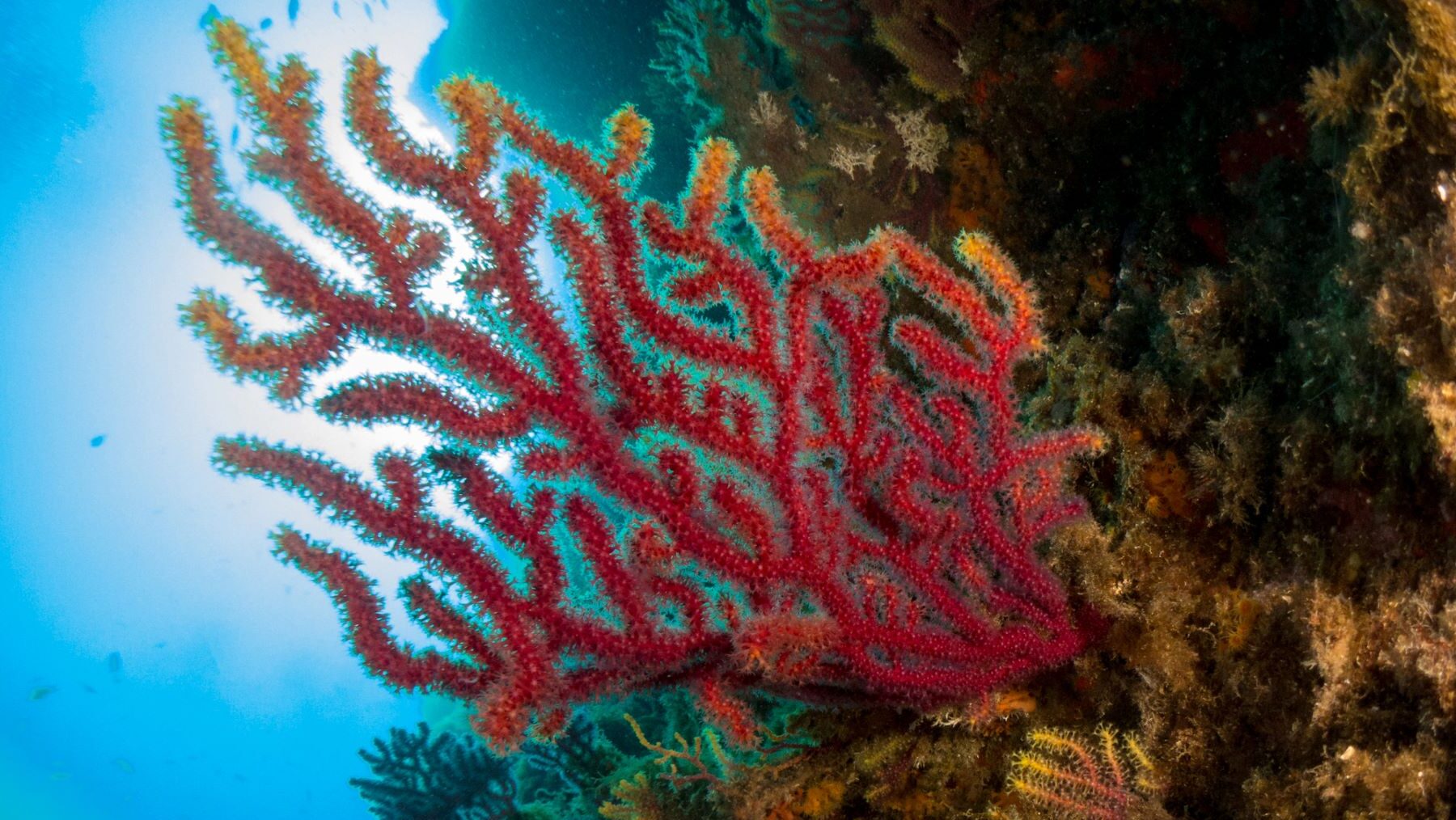He Climate change causes a loss of resilienceand thereby increasing the vulnerability of a species critical to the Mediterranean ecosystem. We talk about red gorgonians and their exposure to damaging marine heat waves.
Fight climate change
A study from the University of Barcelona has analyzed the capacity of red gorgonians (Paramuricea clavata), a key species for the Mediterranean maritime ecosystemto withstand and recover from heat waves at sea.
The results, published in the Journal of Animal Ecology, show that the increase in the frequency and intensity of these extreme climate events –one of the consequences of climate change– will make these populations more vulnerable to future shocks, apart from global warming and heat waves, increasing the risk of extinction. This negative impact would have serious consequences for marine ecosystems, according to experts.

«Paramuricea clavata is a species that plays an essential role in a species community endemic to the Mediterranean Sea, the coralline. These communities have high associated diversity and They represent about 10% of Mediterranean species.
Therefore, the decrease in the resilience of these species, or even their extinction, could lead to major changes in the structure and functioning of the Mediterranean funds», warns Professor Pol Capdevila, from the Faculty of Biology and researcher at the Biodiversity Research Institute of the UB (IRBio), first author of the article. IRBio researchers Yanis Zentner, Graciela Rovira, Alba Medrano and Cristina Linares also participated in the study, along with Joaquim Garrabou from the CSIC’s Institute of Marine Sciences.

Study in the natural parks of Port-Cros and Montgrí, the Medes Islands and the Baix Ter
In the study, the researchers conducted long-term monitoring, from 1999 to 2022, of nine populations of red gorgonians in the Montgrí Natural Park, the Medes Islands and the Baix Ter, and in the Port-Port Natural Park. Cros, with the aim of finding the resilience of these organisms against heat waves at sea.
“The Mediterranean Sea has warmed faster than the world’s oceans, making it one of the regions hardest hit by marine heat waves. increase in frequency, intensity, duration and prolongation; Even in the most optimistic scenarios climate change.
Therefore, it is critical to understand the resilience of marine species in the face of the increase in these extreme events predict its viability under future climate conditions», explain the authors of the article.
The research shows that P. clavata populations are exposed to heat waves have less endurance and a slower recovery rate than populations not exposed to these events. ‘These results suggest that increasing the frequency of heat waves will most likely accelerate the extinction of shallower populations of P. clavata.
Not only that, what we have observed is that after experiencing a heat wave, these populations have less capacity to resist and recover from other types of disturbances,” Capdevila points out. According to the researchers, this low resilience yields more evidence of the vulnerability of long-lived species to global change.
Similar effects in other parts of the Mediterranean
The researchers also suggest that this impact on P. clavata “certainly also occurs in other locations in the Mediterranean.” Regarding other coral species, the authors point out that it is “probable that their resilience is also strongly affected by shocks», but they are more careful.
«It must be taken into account that not everything coral species have the same population dynamics. In the case of Paramuricea clavata it is a species that is highly dependent on the survival of its adult individuals, but in other species this is not necessarily the case. Therefore, our results cannot necessarily be extrapolated to coral species with faster population dynamics,” Capdevila adds.
In this sense, the results contrast with the hypothesis of ecological memory, that is, the influence of past events on the current state of ecosystems. This hypothesis emerged from studies conducted in the Great Barrier Reef, where it was found that the The impact of heat waves on corals may be lower if they had already been exposed to a heat wave last year.
“In the context of the Great Barrier Reef, the ecological memory hypothesis predicts that populations that survived previous waves of disturbances could be less affected by new heat waves. However, our results seem to indicate that this is the case with more heat waves the resilience of these species to other disturbances is lower», details Pol Capdevila.
The researchers emphasize that these differences may be due to the mechanisms by which tropical and temperate corals achieve this Demographic resilience differs due to specific physiological and demographic characteristics.
Given these results, experts propose measures to minimize the impact on red gorgonian populations. “That could be possible at a local level, for example protect the populations of this species through marine protected areas or limiting recreational activities, such as diving, where these corals are found.
On the other hand, they need to be implemented on a large scale measures to climate change more effective, because it would benefit not only this species, but also many others,” they conclude.
He Climate change is causing serious changes in sea temperatures and the appearance of marine heat waves affecting many species. Gorgon responses could provide important guidance for scientists looking to protect biodiversity from these catastrophic events.

